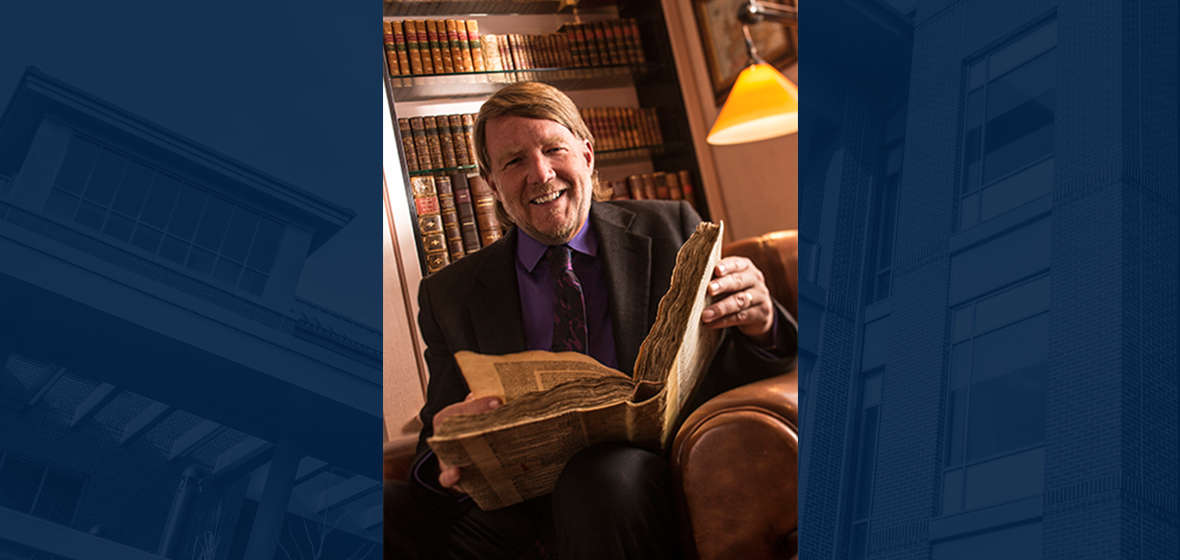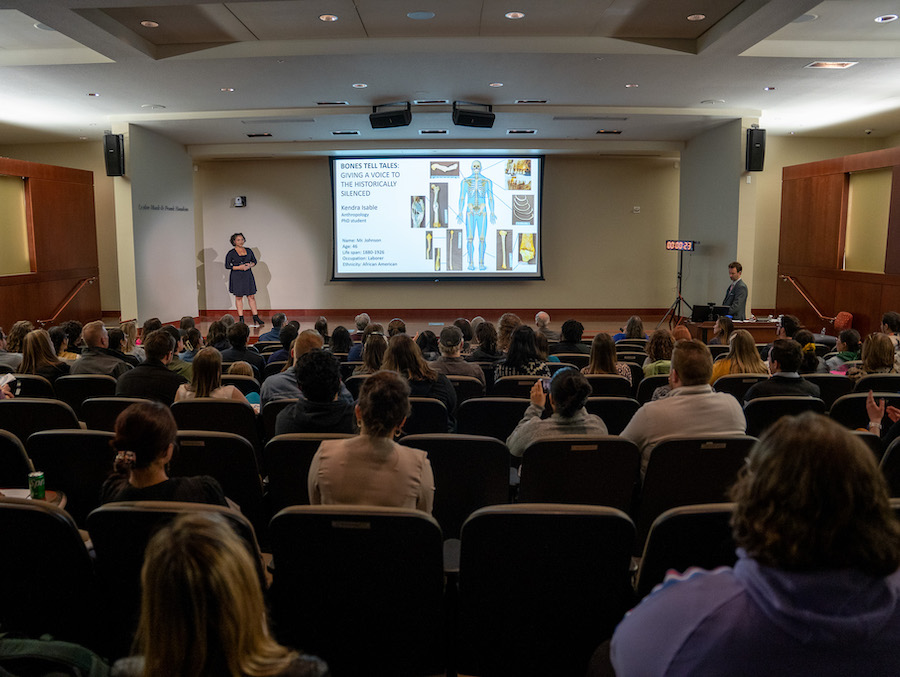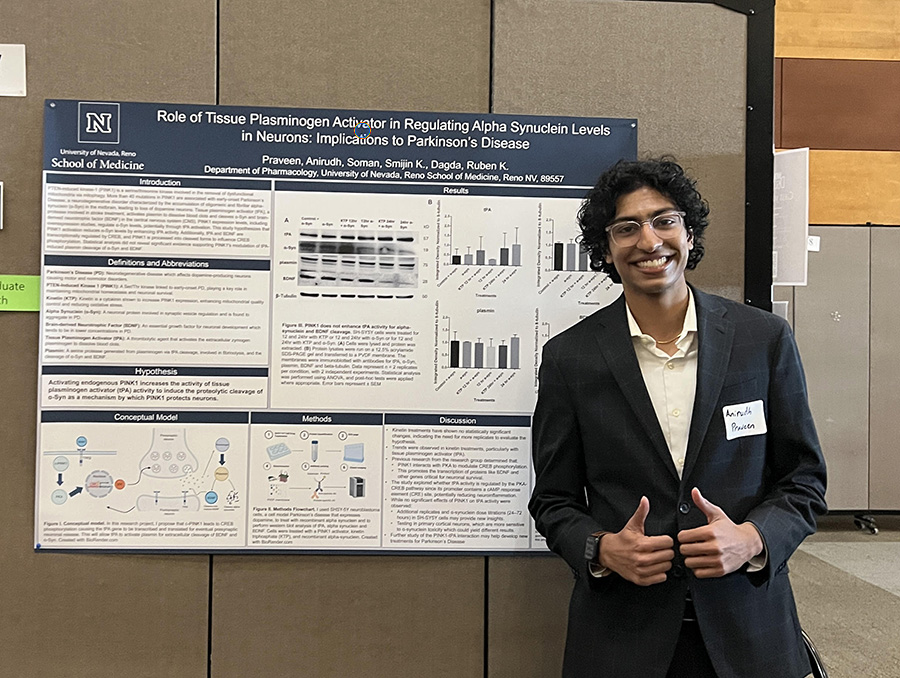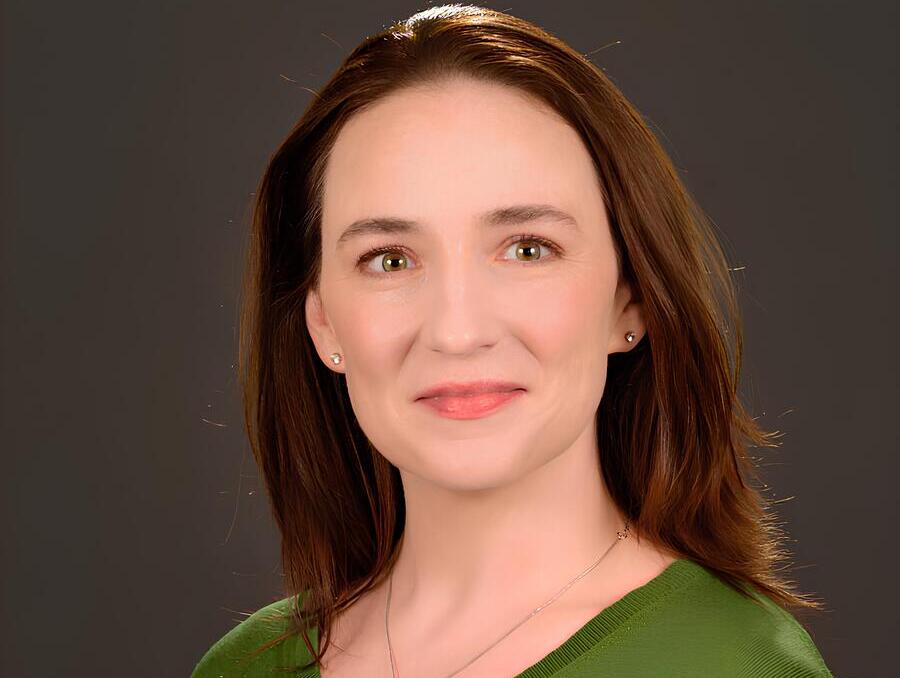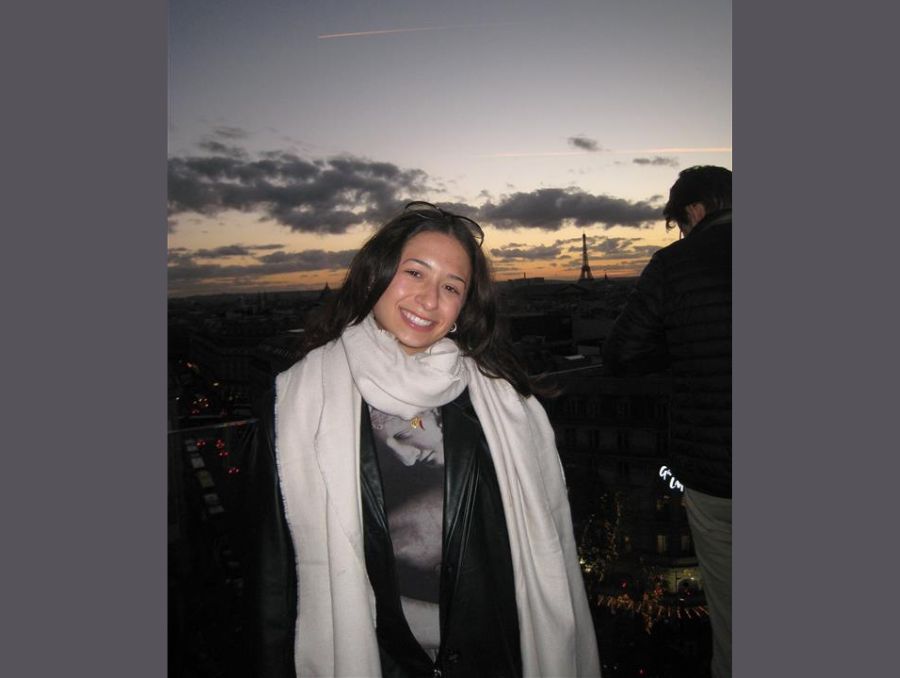"It was a trip of misery to myth," Eric Rasmussen said. The Foundation Professor and chair of the University of Nevada, Reno's English Department recounts his recent trip abroad, and said that the worldwide media attention and excitement of the discovery of a 17th century first folio of William Shakespeare overshadowed his initial hesitancy to visit Saint-Omer, France.
"I received a call from a Saint-Omer librarian a week before I traveled to London for a meeting to plan the British Library exhibit in 2016 around the 400th anniversary of Shakespeare's death," Rasmussen explained. "I didn't want to leave London; most of these calls or inquires amount to nothing, but the Saint-Omer library also has a Gutenberg Bible. It takes someone with enough knowledge and interest to do some research, so I thought I better check it out."
It was librarians at a public library in northern France, particularly the director of the medieval and early modern collection, Rémy Cordonnier, who took interest in a book with no title page and no marks on the binding. They decided to contact Rasmussen to make the final connection.
"It was raining horribly when I traveled from England to France, then so quickly had to return to London, then the United States," Rasmussen said. "It was not a pleasant trip, but it took almost no time at all to know that I was looking at an original Shakespeare folio."
Before this discovery, it is believed that just 232 of Shakespeare's 800 first folios - some of the rarest books in the world - still exist. The first folio is recognized with preserving many of his plays since none of his original manuscripts survived.
"There are many indicators to quickly be able to authenticate a relic like this," Rasmussen continued. "From the press variant, watermarks, paper composition and binding. It's just that so many historical items get buried or lost during time that a discovery like this is magnificent."
The library staff at first assumed the coverless book was an 18th- or 19th-century facsimile or reprint. The library is preparing for a British literature exhibition in 2015 and started to examine it more closely.
"It was cataloged with a Neville ownership signature," Rasmussen said, and during a National Public Radio interview on Thanksgiving Day, he further explained, "Neville was the alias that was taken by the Scarisbrick family, a family of Catholic nobles. And we know Edward Scarisbrick, who took the name of Neville, went to Saint-Omer College after the Catholics were banned from England's universities."
Rasmussen said that the Neville name has again provoked a long-disputed argument among scholars about whether William Shakespeare may have been a secret Catholic.
In a New York Times interview , the first American outlet to break the story of the first folio discovery late last month, Rasmussen further explained the quarrel.
"People have been making some vague arguments, but now for the first time we have a connection between the Jesuit college network and Shakespeare," he said. "The links become a little more substantial when you have this paper trail."
Rasmussen believes this discovery will stoke this controversial fire for some time. He's been busy personally answering every email he's received - nearly 500 the first week after media reports hit - many with requests to authenticate a family heirloom, a task he will not entertain.
Rasmussen now refocuses his time and attention to the British Library Shakespeare exhibition, which marks the 400th anniversary of Shakespeare's death in April 2016. He was asked to curate the exhibit, a role he humbly and proudly accepted. He will travel to London every few months leading up to the unveiling. The exhibit will run from April through September 2016.
Rasmussen has served on the Board of Trustees of the Shakespeare Association of America, on the General Council of the Malone Society, and as General Textual Editor of the Internet Shakespeare Editions Project - one of the most visited Shakespearean websites in the world.
Rasmussen has written and edited 50 scholarly books, the majority of which are about Shakespeare. He has established himself as the world's pre-eminent expert on Shakespeare's life, writing and language. Weighing in on the recent claims about the 1602 quarto edition of Thomas Kyd's play, The Spanish Tragedy, having been partially written by Shakespeare, and then moderating a scholarly duel on the authorship of Double Falsehood, people throughout the world turn to University of Nevada, Reno English Professor Rasmussen when they want to know more about Shakespeare.
At the University, Rasmussen has successfully garnered numerous grants and fellowships; has received the University's highest award for teaching excellence, the F. Donald Tibbitts Distinguished Teacher Award; the top teaching award for the entire Nevada System of Higher Education, the Regents' Teaching Award; and was selected last year as a Foundation Professor.
